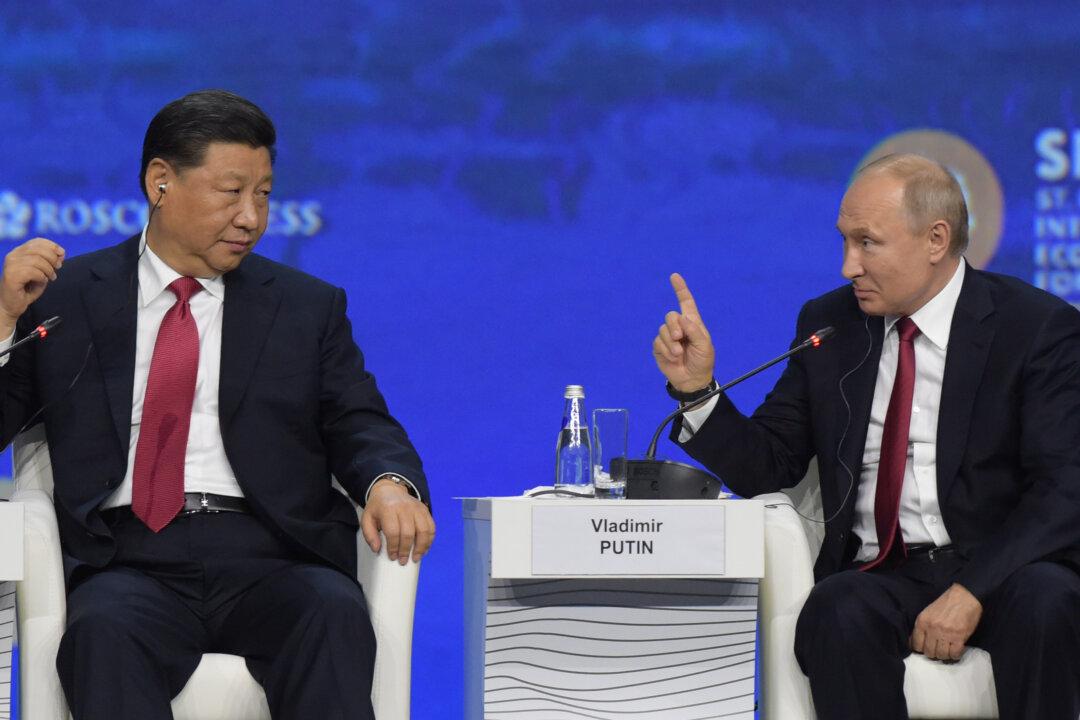The Chinese Communist Party (CCP) is sending mixed signals about its commitment to uphold international sanctions against Russia, following the latter’s invasion of Ukraine. The CCP regime has enacted some sanctions and lifted others.
Two of China’s largest state-owned banks restricted financing for purchases of Russian commodities on Feb. 25, following an announcement of a number of sanctions by the United States and its allies in response to the ongoing war in Ukraine.




